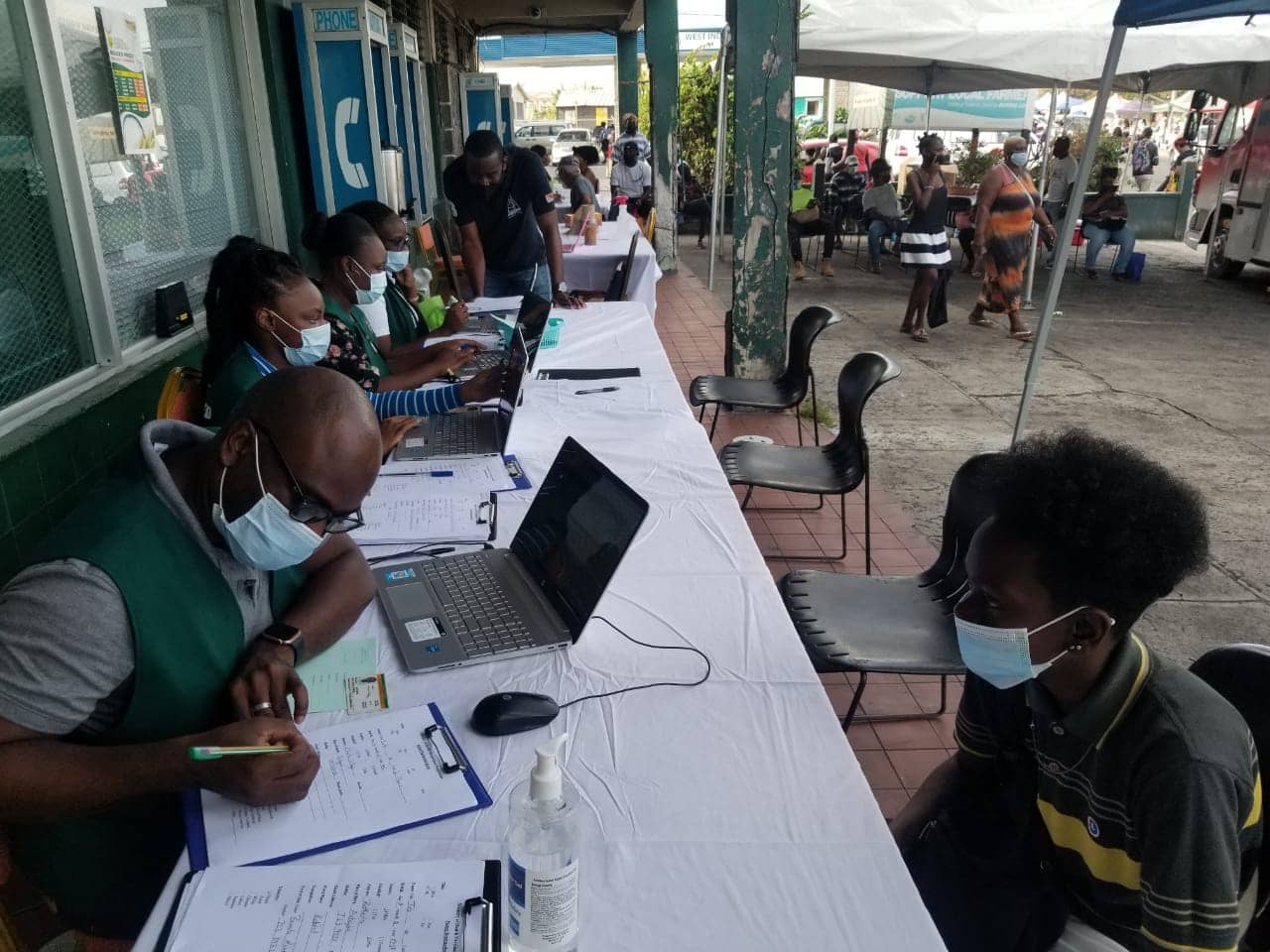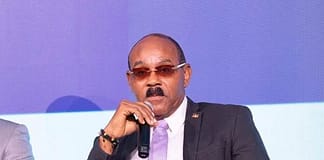
The Ministry of Health, Wellness and the Environment wishes to commend the public for their response in recognizing the importance of being vaccinated against Covid-19 and for turning out in their numbers at the Market Square on Saturday, April 17 to be inoculated.
Health Minister Sir Molwyn Joseph hailed the event a success noting that “this mobile vaccination drive was planned and executed within a few days and I am extremely pleased that close to two hundred and fifty persons turned out to receive the Covid-19 vaccine.”
Sir Molwyn further stated “The response of the two hundred and forty-four individuals who came out to be vaccinated is a clear demonstration of Antiguans and Barbudans responding to the urgent need to be vaccinated in order for the country to return to normalcy.”
The success of this mobile vaccination drive has influenced the Ministry to stage another mobile vaccination drive next Saturday 24th April 2021. The details will be revealed in a subsequent publication.
The Ministry wishes to thank all of the Healthcare workers, Police Officers and Volunteers for going beyond the call of duty, recognizing the importance of the Covid-19 vaccination program and assisting on the weekend.
Each Vaccinated! All Protected!
Advertise with the mоѕt vіѕіtеd nеwѕ ѕіtе іn Antigua!
We offer fully customizable and flexible digital marketing packages.
Contact us at [email protected]
















Good idea, glad it will continue across the island
Blacks aren’t getting enough vitamin D – low levels are linked to covid deaths
Vitamin D may be the most important supplement you’re not taking—or not taking enough of. Most of us—and even our doctors—have little idea that taking regular amounts of it may help stave off some of the most common life-threatening illnesses.
Best known for building bones and preventing rickets—a bone disease more common in the days of Charles Dickens than today—vitamin D has recently been shown to lower the risk of diabetes, hypertension, multiple sclerosis, osteoporosis, memory loss and several types of cancer.
Despite this good news, most Americans don’t get near enough vitamin D. And among African Americans, some experts have called vitamin D deficiency a “hidden epidemic” and have speculated that low levels are to blame for higher rates of diseases such as hypertension, heart disease and diabetes. The Chicago Sun-Times went even further, linking African-American death rates from aggressive forms of breast and prostate cancer to low levels of vitamin D.
In the body, vitamin D is produced by sun exposure. But Americans aren’t exposed to as much sunlight as we used to be—either because we’re inside watching TV or hunched over computers or avoiding the sun to prevent skin cancer.
So how much vitamin D do we need? That’s still being debated. In March, researchers at the University of Colorado Denver School of Medicine found that 3 in 4 Americans had insufficient levels of vitamin D, up from about 1 in 2, when measured 20 years ago.
Last fall, the American Academy of Pediatrics recommended infants, children and adolescents double the amount of D they ingest each day. The government recommends a daily intake of 200 international units (IU) from birth to age 50, 400 IU for people between 51 and 70, and 600 IU for those over 70.
Other experts have suggested even bigger boosts. The University of Colorado researchers advised increasing vitamin D intake to 1,000 IU daily. The well-respected Institute of Medicine went even further, recommending 2,000 IU a day. So drinking fortified milk, at 100 IU a glass, is just not enough.
Comments are closed.